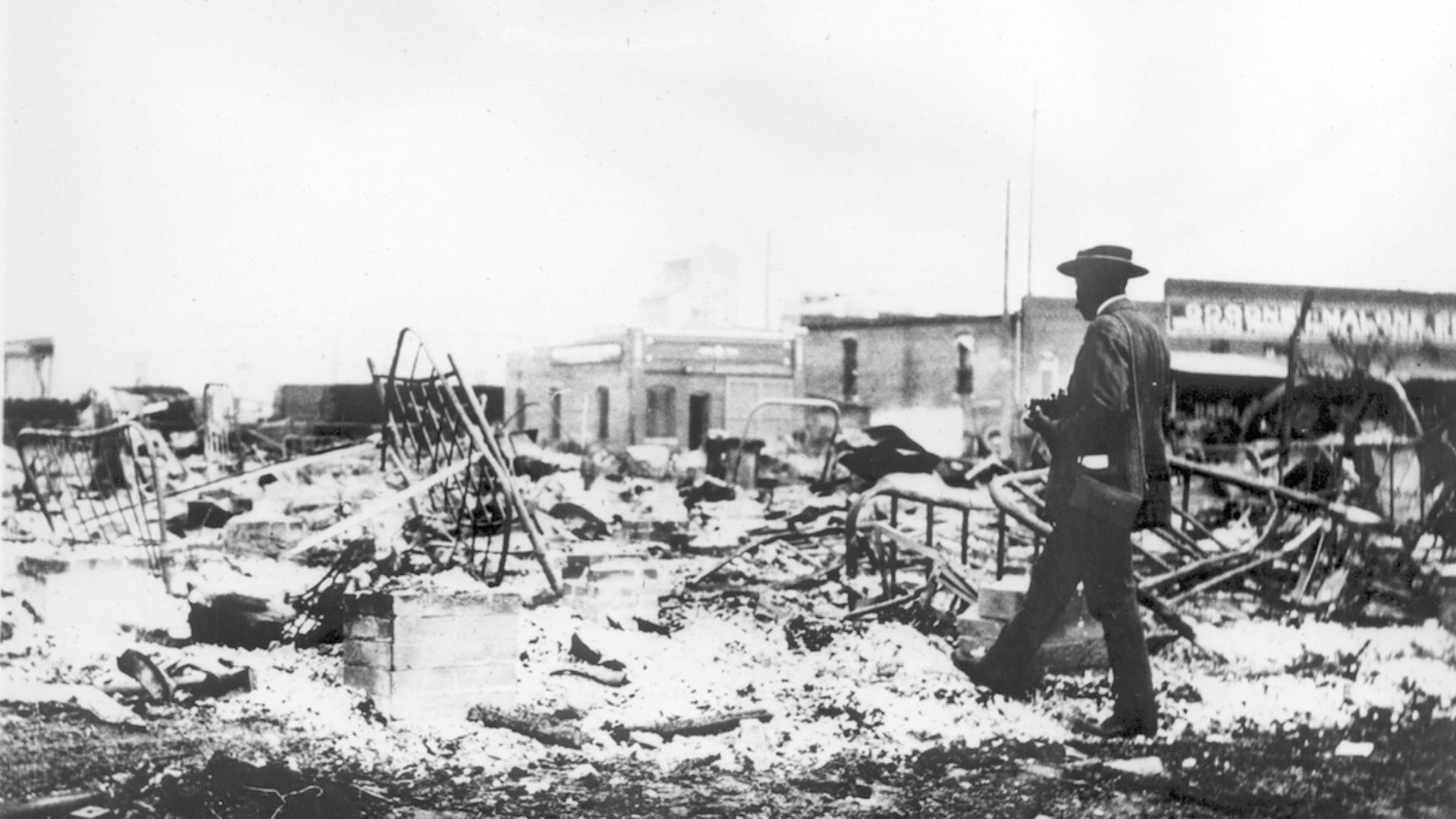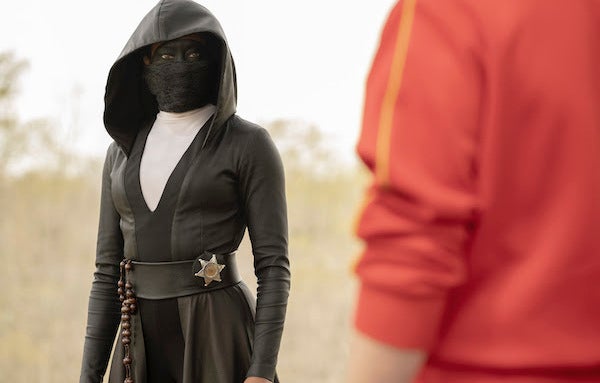
If you tuned into the premiere of HBO’s Watchmen on Sunday, then you may have recognized an important moment in Black history.
Last night, the series opened with a flashback to the Black Wall Street Massacre, also known as the Tulsa Race Massacre. While Watchmen is set in an alternate reality, the events of the Tulsa Race Massacre are very real. The real event happened in Tulsa, Oklahoma, where the series takes place, in the Greenwood neighborhood of the city.
The riot began Memorial Day after a 19-year-old Black shoeshiner named Dick Rowland was accused of assaulting Sarah Page, a 17-year-old White elevator operator. An angry mob of White people later gathered at the courthouse where they believed Rowland was being held, and soon violence erupted across the city as the angry mob grew and spread.
While the official death toll of the massacre has been reported as 36, historians believe that number to be way too low. It is likely that up to 300 people were murdered, while more than 8,000 people were left homeless.
Police later concluded that Rowland had likely stumbled into Page or stepped on her foot.
The last surviving witness of the massacre, Dr. Olivia Hooker, told NPR back in 2018 that Greenwood had been “a neighborhood where you could be treated with respect.”
“My father’s store was destroyed,” she said. “There was nothing left but one big safe. It was so big they couldn’t carry it away, so they had to leave it—in the middle of the rubble.”

Hooker also told Radio Diaries, “It was a horrifying thing for a little girl who’s only 6 years old trying to remember to keep quiet, so they wouldn’t know we were there.”
A report from The New York Times also recalled the horrifying scene.
“Fires had been started by the White invaders soon after 1 o’clock and other fires were set from time to time. By 8 o’clock, practically the entire 30 blocks of homes in the negro quarters were in flames and few buildings escaped destruction. Negroes caught in their burning homes were in many instances shot down as they attempted to escape.”
Hooker told NPR that she remains optimistic, adding, “Our parents tried to tell us, don’t spend your time agonizing over the past. They encouraged us to look forward and think about how we could make things better.”